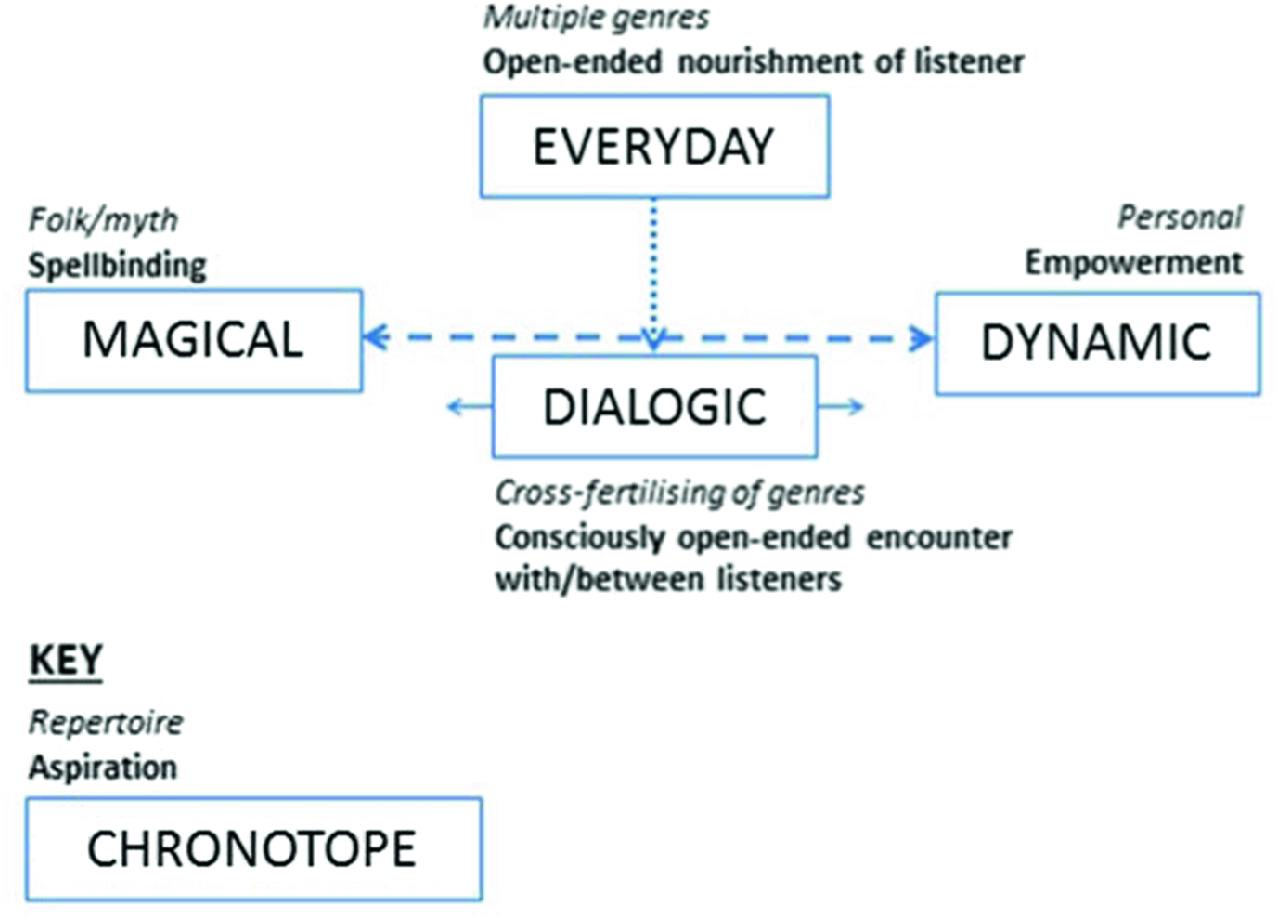

As a result, enchantment is a flying in the face of God and a denial of His power. Enchantment, in contrast, may be characterized as a subversion of those traits most intimately connected with the human chronotope, specifically as they are derived from the teachings of the Christian church. These legends are related to religious texts, which provide a basis for the construction of what might be labeled "the human chronotope." The religious concept of free will turns out to be an important component of this human chronotope.

I utilize Swedish-language legends collected in Finland in the 1800s and 1900s as a case study. The article examines the ways in which enchantment changes man's relation to the human world and the otherworld, how it affects his perception, his sense of the body and its location in space, and his notions of time and of his personality. In this article Mikhail Bakhtin's conception of chronotopes, the interconnectedness of time and space in literature, is applied to explore how enchantment influences temporal and spatial relationships and the image of man in narrative.


 0 kommentar(er)
0 kommentar(er)
